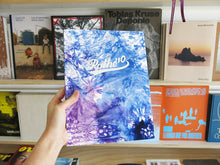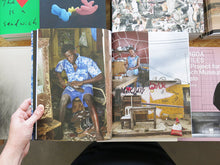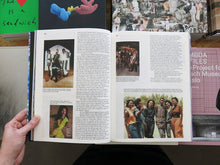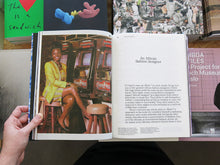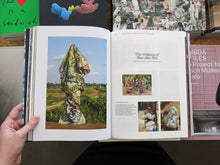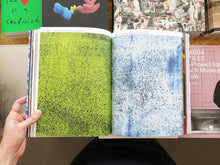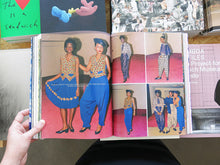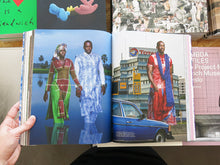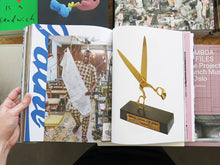
Pathé’O, originally from Burkina Faso, is an African fashion icon in every sense of the word. Known for his collections far beyond his chosen home Côte d'Ivoire, the designer’s visionary legacy has been influencing the aesthetic standards and experience of fashion on the African continent for over 30 years and has also led to a recent collaboration with the fashion house Dior. His distinct design aesthetics and cutting-edge approach to sustainability alongside a gift for combining cultural commitment with entrepreneurial creativity have inspired designers of all ages. For long it was common for politicians and showbiz celebrities in West African former French colonies to dress in a Western manner. In this context Pathé’O approached his work with the clear intention to raise appreciation amongst Africans for a local fashion style and industry.
In the 80s, Pathé’O became friends with Thomas Sankara, president of Upper Volta, later Burkina Faso, and a proponent of Pan-Africanism. Pathé’O was heavily influenced by Sankara’s decisiveness to promote local pride and cultural heritage and from this point on he solely relied on using locally produced fabrics. His creations became a contemporary tribute to cultural heritage, history and identity. A further prominent encounter Pathé’O experienced was with Nelson Mandela, who was the first African president to chose his vibrant designs and light cotton fabrics over a Western business suit. And he was soon to be followed by other heads of states, as well as stars of the showbiz and sports, and of course Madame et Monsieur Tout-le-Monde.
Pathé’O’s fabrics are his trademark and he has a lifelong experience of fusing global fashion trends with a wide range of African textiles and knowledge, hence keeping the local heritage alive and ever evolving. For the first time, this book traces the extraordinary journey of Pathé’O and his brand. The craftmanship and treasures of his creations provide a better understanding of the spectrum of fashion in West Africa, the mergers of a global present with a rich cultural heritage. The book explores topics ranging from the fashion and textile industry to labour migration, cultural heritage, politics and showbiz, and spans an arc from the past to the present.
With an interview by Catherine Morand and texts by Chayet Chiénin, Denise Epoté, Anne Grosfilley, Genevieve Hill-Thomas, Pépita Kragbé-Coulibaly, Célestin Monga, Saidi Mamadou Ouédraogo, Flurina Rothenberger, Filippe Sawadogo and Victoria L. Rovine.
464 pages, 28 x 21cm, softcover, Edition Patrick Frey (Zurich).
In the 80s, Pathé’O became friends with Thomas Sankara, president of Upper Volta, later Burkina Faso, and a proponent of Pan-Africanism. Pathé’O was heavily influenced by Sankara’s decisiveness to promote local pride and cultural heritage and from this point on he solely relied on using locally produced fabrics. His creations became a contemporary tribute to cultural heritage, history and identity. A further prominent encounter Pathé’O experienced was with Nelson Mandela, who was the first African president to chose his vibrant designs and light cotton fabrics over a Western business suit. And he was soon to be followed by other heads of states, as well as stars of the showbiz and sports, and of course Madame et Monsieur Tout-le-Monde.
Pathé’O’s fabrics are his trademark and he has a lifelong experience of fusing global fashion trends with a wide range of African textiles and knowledge, hence keeping the local heritage alive and ever evolving. For the first time, this book traces the extraordinary journey of Pathé’O and his brand. The craftmanship and treasures of his creations provide a better understanding of the spectrum of fashion in West Africa, the mergers of a global present with a rich cultural heritage. The book explores topics ranging from the fashion and textile industry to labour migration, cultural heritage, politics and showbiz, and spans an arc from the past to the present.
With an interview by Catherine Morand and texts by Chayet Chiénin, Denise Epoté, Anne Grosfilley, Genevieve Hill-Thomas, Pépita Kragbé-Coulibaly, Célestin Monga, Saidi Mamadou Ouédraogo, Flurina Rothenberger, Filippe Sawadogo and Victoria L. Rovine.
464 pages, 28 x 21cm, softcover, Edition Patrick Frey (Zurich).








